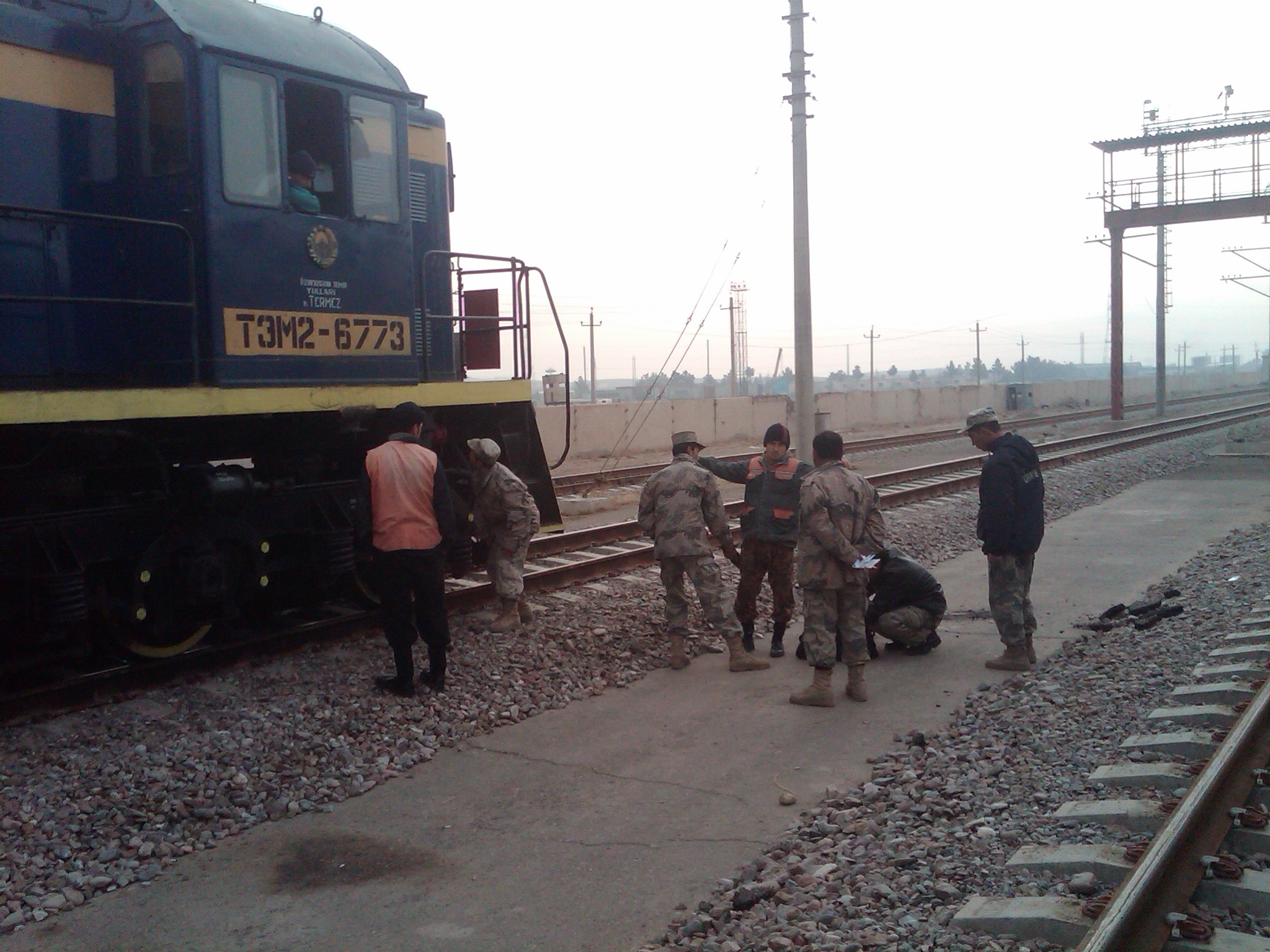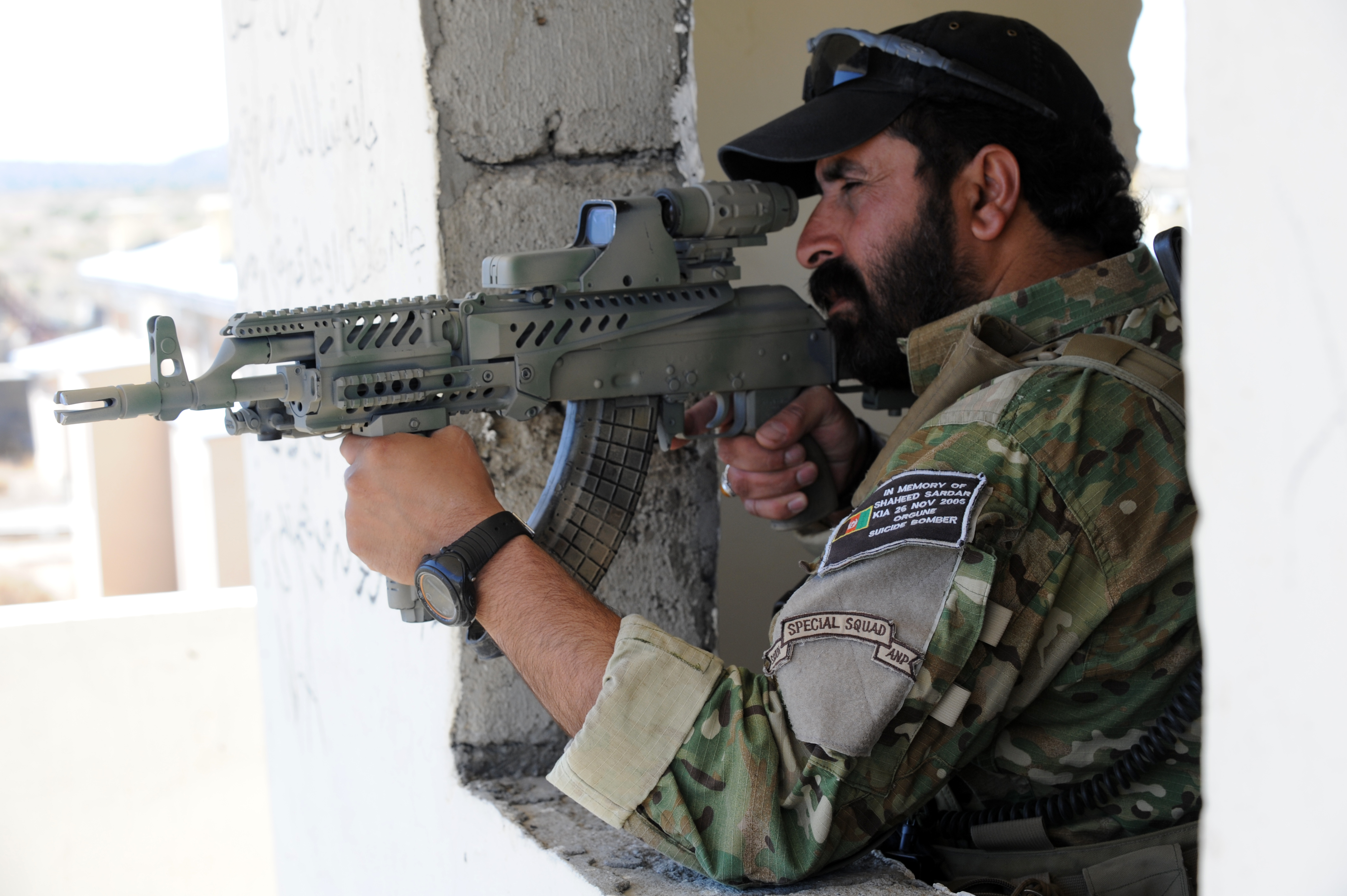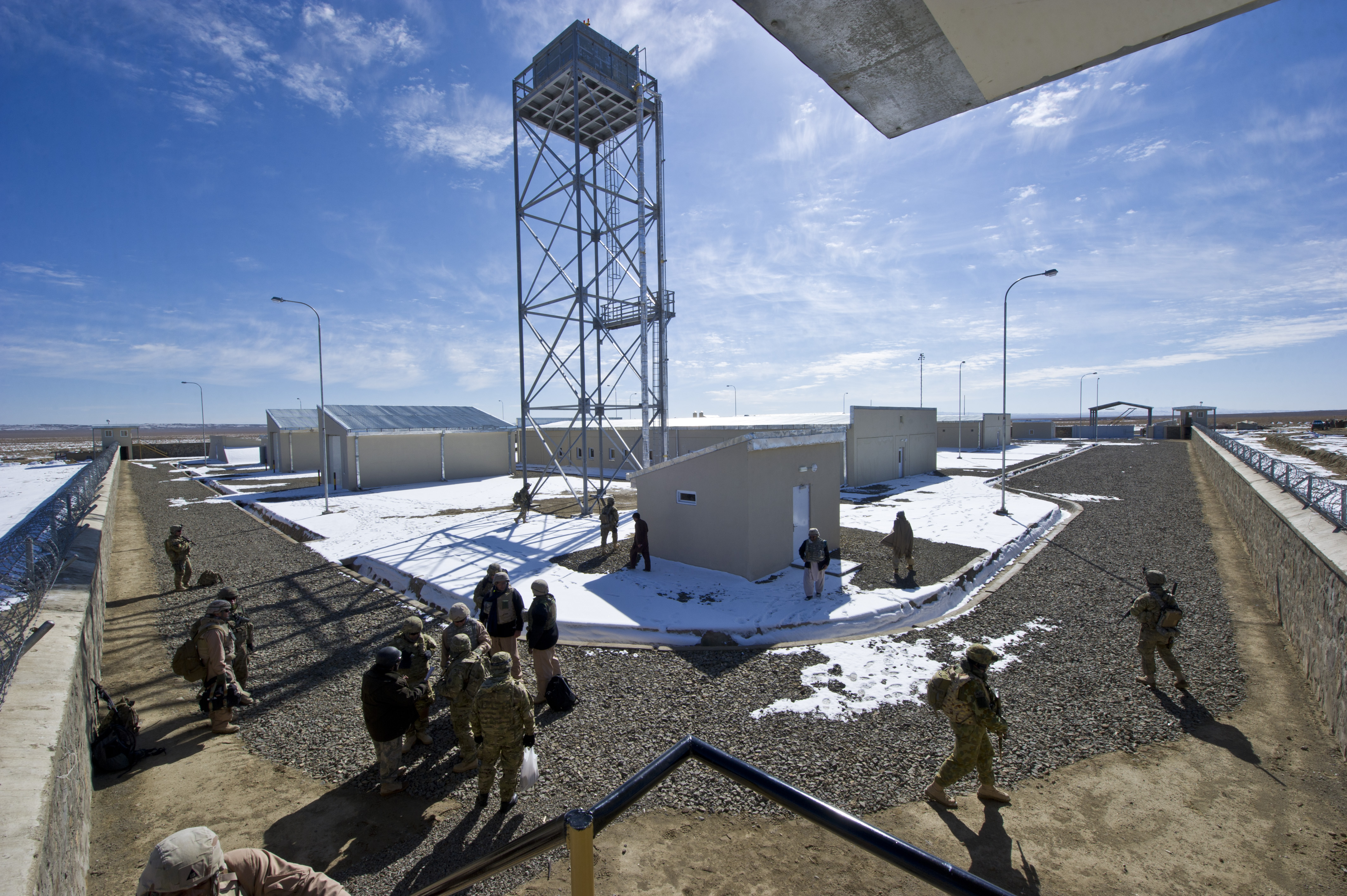Afghan Border Police on:
[Wikipedia]
[Google]
[Amazon]
 The Afghan Border Force (ABF) was responsible for security of
The Afghan Border Force (ABF) was responsible for security of

 *
*

 * Nuristan Province
** Bargi Matal District
**
* Nuristan Province
** Bargi Matal District
**

 *
*
 *
*
 *
*
Combined Security Transition Command – Afghanistan
{{Border protection agencies Border protection Law enforcement in the Islamic Republic of Afghanistan Defunct law enforcement agencies of Afghanistan
 The Afghan Border Force (ABF) was responsible for security of
The Afghan Border Force (ABF) was responsible for security of Afghanistan
Afghanistan, officially the Islamic Emirate of Afghanistan,; prs, امارت اسلامی افغانستان is a landlocked country located at the crossroads of Central Asia and South Asia. Referred to as the Heart of Asia, it is bordere ...
's border area with neighboring countries extending up to into the interior and formed part of the Afghan National Army. In December 2017, most of the Afghan Border Police (ABP) personnel of the Afghan National Police
The Afghan National Police (ANP; ps, د افغانستان ملي پولیس; prs, پلیس ملی افغانستان), is the national police force of the Islamic Emirate of Afghanistan, serving as a single law enforcement agency all across ...
were transferred to the Afghan National Army to form the Afghan Border Force. The ABP retained 4,000 personnel for customs operations at border crossings and international airports
An international airport is an airport with customs and border control facilities enabling passengers to travel between countries around the world. International airports are usually larger than domestic airports and they must feature longer r ...
such as checking documents of foreigners entering the country or deporting them.
The ABF's, and its predecessor the ABP, anti-narcotic efforts were a prominent concern to the international community during the War in Afghanistan
War in Afghanistan, Afghan war, or Afghan civil war may refer to:
*Conquest of Afghanistan by Alexander the Great (330 BC – 327 BC)
* Muslim conquests of Afghanistan (637–709)
*Conquest of Afghanistan by the Mongol Empire (13th century), see al ...
. The ABF, and the ABP in its former role, patrolled a 50 km-wide corridor along the entirety of Afghanistan's border, particularly the long and porous Durand Line
The Durand Line ( ps, د ډیورنډ کرښه; ur, ), forms the Pakistan–Afghanistan border, a international land border between Pakistan and Afghanistan in South Asia. The western end runs to the border with Iran and the eastern end to th ...
border in the southeast with neighboring Pakistan
Pakistan ( ur, ), officially the Islamic Republic of Pakistan ( ur, , label=none), is a country in South Asia. It is the world's fifth-most populous country, with a population of almost 243 million people, and has the world's second-lar ...
.
Organization
The ABP fell under the command of theAfghan National Police
The Afghan National Police (ANP; ps, د افغانستان ملي پولیس; prs, پلیس ملی افغانستان), is the national police force of the Islamic Emirate of Afghanistan, serving as a single law enforcement agency all across ...
(ANP) which was under the administrative control of the Ministry of Interior Affairs. The ABP was headquartered in Kabul
Kabul (; ps, , ; , ) is the capital and largest city of Afghanistan. Located in the eastern half of the country, it is also a municipality, forming part of the Kabul Province; it is administratively divided into 22 municipal districts. Acco ...
, in the nation's capital, and was commanded by a Lieutenant General
Lieutenant general (Lt Gen, LTG and similar) is a three-star military rank (NATO code OF-8) used in many countries. The rank traces its origins to the Middle Ages, where the title of lieutenant general was held by the second-in-command on the ...
. Prior to 2017, the Afghan Border Police divided command of its 23,000 members across 6 zones to protect 14 Border Crossing Points and 5 Major Airports.
Mazar-e-Sharif
, official_name =
, settlement_type = City
, image_skyline =
, pushpin_map = Afghanistan#Bactria#West Asia
, pushpin_label = Mazar-i-Sharif
, pushpin ...
(Northern Zone)

 *
*Faryab Province
Faryab (Dari: ) is one of the thirty-four provinces of Afghanistan, which is located in the north of the country bordering neighboring Turkmenistan. It has a population of about 1,109,223, which is multi-ethnic and mostly a tribal society. The pr ...
** Almar District
** Shirin Tagab District
** Dawlat Abad District
** Qaramqol District
** Andkhoy District
** Khani Chahar Bagh District
*Jowzjan Province
Jowzjan, sometimes spelled Jawzjan or Jozjan (Dari: ), is one of the thirty-four provinces of Afghanistan, located in the north of the country bordering neighboring Turkmenistan. The province is divided into 11 districts and contains hundreds of v ...
** Khwaja du koh District
** Khamyab District
** Qarqin District
*Balkh Province
Balkh (Dari: , ''Balx'') is one of the 34 provinces of Afghanistan, located in the north of the country. It is divided into 15 districts and has a population of about 1,509,183, which is multi-ethnic and mostly a Persian-speaking society. The c ...
** Shortepa District
**Kaldar District
Kaldar ( prs, کلدار) is a small district (population around 19,400) in the northern part of Balkh Province, Afghanistan. The northern and the eastern border of the district is the large Amu Darya river. North of the river is Uzbekistan and e ...
* Kunduz Province
** Qalay-I-Zal District
** Imam Sahib District
Fayzabad (Northeastern Zone)
*Takhar Province
Takhar (Dari , Farsi/Pashto: ) is one of the thirty-four provinces of Afghanistan, located in the northeast of the country next to Tajikistan. It is surrounded by Badakhshan in the east, Panjshir in the south, and Baghlan and Kunduz in the w ...
** Khwaja Ghar District
** Yangi Qala District
** Sarqad District
** Chah Ab District
*Badakhshan Province
Badakhshan Province (Persian/ Uzbek: , ''Badaxšān'') is one of the 34 provinces of Afghanistan, located in the northeastern part of the country. It is bordered by Tajikistan's Gorno-Badakhshan in the north and the Pakistani regions of Lower ...
** Shahri Buzurg District
** Yawan District
** Ragh District
** Kuf Ab District
** Shekay District
** Darwaz district
** Darvaz-e Bala District
** Shighnan District
** Ishkashim District
** Wakhan District
**Zebak District
Zebak ( fa, زیبک) is one of the 29 districts of Badakhshan province in northeastern Afghanistan
Afghanistan, officially the Islamic Emirate of Afghanistan,; prs, امارت اسلامی افغانستان is a landlocked country lo ...
**Kuran wa Munjan District
Kuran wa Munjan District is one of the 28 districts of Badakhshan Province in eastern Afghanistan. Located in the Hindu Kush mountains, the district is home to approximately 8,000 residents. The district administrative center is Kuran wa Munjan. ...
Jalalabad
Jalalabad (; Dari/ ps, جلالآباد, ) is the fifth-largest city of Afghanistan. It has a population of about 356,274, and serves as the capital of Nangarhar Province in the eastern part of the country, about from the capital Kabul. Jala ...
(Eastern Zone)

 * Nuristan Province
** Bargi Matal District
**
* Nuristan Province
** Bargi Matal District
**Kamdesh District
Kamdesh District (Kamdeish District, ps, کامدېش ولسوالۍ, fa, ولسوالی کامدیش) is a district of Nuristan Province in eastern Afghanistan,
*Kunar Province
Kunar (Pashto: ; Dari: ) is one of the 34 provinces of Afghanistan, located in the northeastern part of the country. Its capital is Asadabad. Its population is estimated to be 508,224. Kunar's major political groups include Wahhabis or Ahl-e- Ha ...
** Nari District
** Dangam District
**Marawara District
Marawara District (; ) is one of the 15 districts in Kunar Province, Afghanistan. It borders Sirkanay District to the west, Asadabad District to the north-west, Dangam District to the north-east and the Durand Line to the south. Marawara's po ...
**Sirkanay District
Sirkanay District (Sarkani District) is situated in the central part of Kunar Province, Afghanistan. It borders Pakistan to the south. The population is 39,292 (2019). The district administrative center is the village of Serkanay () at 775 m altit ...
** Khas Kunar District
* Nangarhar Province
** Goshta District
** Lal Pur District
** Momand Dara District
**Dur Baba District
Dur Baba ( ps, دور بابا) is a district in the southeast of Nangarhar Province, Afghanistan, bordering Pakistan. The district centre is the village of Dur Baba. The population was 29,197 in 2002. The district is within the heartland of the ...
** Achin District
** Dih Bala District
** Pachir Wa Agam District
**Khogyani District
Khogyani ( ps, خوږياڼي ولسوالۍ, fa, ولسوالی خوگیانی) is a district in the south of Nangarhar Province, Afghanistan, bordering on Pakistan. Its population is entirely Pashtun, and was estimated at 146,852 in 2002. Th ...
** Sherzad District
Gardez (Southeastern Zone)

 *
*Paktia Province
Paktia (Pashto/Dari: – ''Paktyā'') is one of the 34 provinces of Afghanistan, located in the east of the country. Forming part of the larger Loya Paktia region, Paktia Province is divided into 15 districts and has a population of roughly ...
** Azra District
** Zazi District
** Dand Wa Patan District
*Khost Province
Khost ( Pashto/ Dari: ) is one of the 34 provinces of Afghanistan, located in the southeastern part of the country. Khost consists of thirteen districts and the city of Khost serves as the capital of the province. To the east, Khost Province is ...
** Jaji Maydan District
**Bak District
Bäk District ( ps, باک ولسوالۍ, fa, ولسوالی باک) is situated in the northern part of Khost Province, Afghanistan. It borders Tere Zayi District to the south, Sabari District to the west, Zazi Maydan District to the north, ...
** Tirazayi District
** Khost District
**Gurbuz District
Gurbuz District ( ps, ګربز ولسوالۍ, fa, ولسوالی گربز) is situated in the southeast part of Khost Province, Afghanistan. It borders Tani District to the west, Mando Zayi and Khost districts to the north and Khyber Pakhtunkh ...
**Tani District Tani District ( ps, تڼي ولسوالۍ, fa, ولسوالی تنی) is situated in the southern part of Khost Province, Afghanistan. It borders Spera District to the west, Nadir Shah Kot and Mando Zayi to the north, Gurbuz District to the east ...
**Spera District
Spera District is situated in the most southwestern part of Khost Province, Afghanistan. It borders with Paktia Province to the south and west, Shamal District to the north. The district is within the heartland of the Zadran tribe of Pashtuns. To ...
*Paktika Province
Paktika (Pashto/Dari: ) is one of the 34 provinces of Afghanistan, located in the eastern part of the country. Forming part of the larger Loya Paktia region, Paktika has a population of about 789,000, mostly ethnic Pashtuns. The town of Sharan ...
** Ziruk District
** Urgon District
** Gayan District
**Barmal District
Barmal District ( ps, برمل ولسوالۍ, prs, ولسوالی برمل) is a district of Paktika Province, Afghanistan. It shares a border with Khyber Pakhtunkhwa and Balochistan, Pakistan. The Angur Ada is the official border checkpoint a ...
**Gomal District
Gomal District ( ps, ګومل ولسوالۍ, fa, ولسوالی گومل) is a district of Paktika Province, Afghanistan. The estimated population in 2019 was 45,873. The district is within the heartland of the Kharoti tribe of Ghilji Pashtuns.
** Wor Mamay District
Kandahar
Kandahar (; Kandahār, , Qandahār) is a city in Afghanistan, located in the south of the country on the Arghandab River, at an elevation of . It is Afghanistan's second largest city after Kabul, with a population of about 614,118. It is the c ...
(Southern Zone)
 *
*Zabul Province
Zabul (Pashto/Dari: ) is one of the 34 provinces of Afghanistan, located in the south of the country. It has a population of 249,000. Zabul became an independent province from neighbouring Kandahar in 1963. Historically, it was part of the Za ...
** Shamulzayi District
** Atghar District
*Kandahar Province
Kandahār ( ps, ; Kandahār, prs, ; ''Qandahār'') is one of the thirty-four provinces of Afghanistan, located in the southern part of the country, sharing a border with Pakistan, to the south. It is surrounded by Helmand in the west, Uruzga ...
**Maruf District
Maruf District (from the Persian: معروف), also Ma'ruf or Maroof, is a district in Kandahar Province, Afghanistan. It borders Arghistan District to the west, Zabul Province to the north and Pakistan
Pakistan ( ur, ), officially the ...
**Arghistan District
The Arghistan District ( ps, ارغستان ولسوالۍ, fa, ولسوالی ارغستان) is a district in the northeastern part of Kandahar Province, Afghanistan. It borders Spin Boldak District to the south and west, Daman District to the ...
**Spin Boldak District Spin Boldak is a district in the eastern part of Kandahar Province, Afghanistan. It borders Daman District to the west, Arghistan District to the north, Qila Abdullah District of Pakistan to the east and Shorabak District to the south. The popula ...
** Shorabak District
** Reg District
*Helmand Province
Helmand (Pashto/Dari: ; ), also known as Hillmand, in ancient times, as Hermand and Hethumand, is one of the 34 provinces of Afghanistan, in the south of the country. It is the largest province by area, covering area. The province contains 13 ...
** Garmsir District
** Dishu District
*Nimruz Province
Nimruz or Nimroz (Dari: ; Balochi: ) is one of the 34 provinces of Afghanistan, located in the southwestern part of the country. It lies to the east of the Sistan and Baluchestan Province of Iran and north of Balochistan, Pakistan, also borde ...
** Chahar Burjak District
** Zaranj District
** Kang District
Herat
Herāt (; Persian: ) is an oasis city and the third-largest city of Afghanistan. In 2020, it had an estimated population of 574,276, and serves as the capital of Herat Province, situated south of the Paropamisus Mountains (''Selseleh-ye Safē ...
(Western Zone)
 *
*Farah Province
Farah (Dari: , ''Farā'') is one of the 34 provinces of Afghanistan, located in the southwestern part of the country next to Iran. It is a spacious and sparsely populated province, divided into eleven districts and contains hundreds of villages. ...
** Lash Wa Juwayn District
** Shib Koh District
** Qala i Kah District
** Anar Dara District
*Herat Province
Herat ( Persian: ) is one of the thirty-four provinces of Afghanistan, located in the north-western part of the country. Together with Badghis, Farah, and Ghor provinces, it makes up the north-western region of Afghanistan. Its primary city a ...
** Adraskan District
** Ghoryan District
** Kohsan District
**Gulran District
Gulran District is situated in northwestern part of Herat province, Afghanistan and borders Iran to the west, Turkmenistan to the north, Kushk District to the east, and Zinda Jan District and Kohsan District
Kohsan is a district of Herat prov ...
** Kushk District
** Kushki Kuhna District
* Badghis Province
** Ab Kamari District
** Muqur District
**Murghab District
Bala murghab (Pashto/ fa, script=latn, Bala Murġāb) is a district situated in the northeast of Badghis Province, Afghanistan. The district capital is Bala Murghab city which is located along the Murghab River. Bala Murghab is surrounded by som ...
** Ghormach District
The majority of the Afghan Border Police officers were trained by the United States Armed Forces
The United States Armed Forces are the military forces of the United States. The armed forces consists of six service branches: the Army, Marine Corps, Navy, Air Force, Space Force, and Coast Guard. The president of the United States is ...
and various Federal government employees as well as by the European Union Police Mission
The European Union (EU) has undertaken a number of overseas missions and operations, drawing on civilian and Defence forces of the European Union, military capabilities, in several countries across three continents (Europe, Africa and Asia), as ...
(EUPOL). In order to prepare for their duties as ABP, recruits attended an 8-week course designed by the German Bundespolizei (BPOL). Also Italy provided qualified training to ABP personnel in West Region by TF GRIFO deployed in Herat by the Guardia di Finanza
The ''Guardia di Finanza'' (G. di F. or GdF) () (English: literal: ''Guard of Finance'', paraphrased: ''Financial Police'' or ''Financial Guard'') is an Italian law enforcement agency under the authority of the Minister of Economy and Finance. ...
. The BPOL were still heavily involved in mentoring ABP officers as of 2009.
In January 2011, there were at least 25 U.S. Immigration and Customs Enforcement
The U.S. Immigration and Customs Enforcement (ICE) is a federal law enforcement agency under the U.S. Department of Homeland Security. ICE's stated mission is to protect the United States from the cross-border crime and illegal immigration tha ...
and Customs and Border Protection officers providing training to the Afghan Border Police. Homeland Security Secretary Janet Napolitano
Janet Ann Napolitano (; born November 29, 1957) is an American politician, lawyer, and university administrator who served as the 21st governor of Arizona from 2003 to 2009 and third United States secretary of homeland security from 2009 to 20 ...
stated that the number could reach 65 or more by the end of 2011. Napolitano visited the Torkham
Torkham (; ps, , translit=tūrxam) is a major border crossing between the Pakistani city of Torkham and Afghanistan, located along the Grand Trunk Road on the international border between the two countries. It connects Nangarhar province of A ...
border crossing with Pakistan and was satisfied with the progress being made there.
The ABP was known to have jointly trained with the Tajik Border Troops, its equivalent in Tajikistan
Tajikistan (, ; tg, Тоҷикистон, Tojikiston; russian: Таджикистан, Tadzhikistan), officially the Republic of Tajikistan ( tg, Ҷумҳурии Тоҷикистон, Jumhurii Tojikiston), is a landlocked country in Centr ...
, which was overseen by the Organization for Security and Co-operation in Europe
The Organization for Security and Co-operation in Europe (OSCE) is the world's largest regional security-oriented intergovernmental organization with observer status at the United Nations. Its mandate includes issues such as arms control, pro ...
.
References
External links
Combined Security Transition Command – Afghanistan
{{Border protection agencies Border protection Law enforcement in the Islamic Republic of Afghanistan Defunct law enforcement agencies of Afghanistan